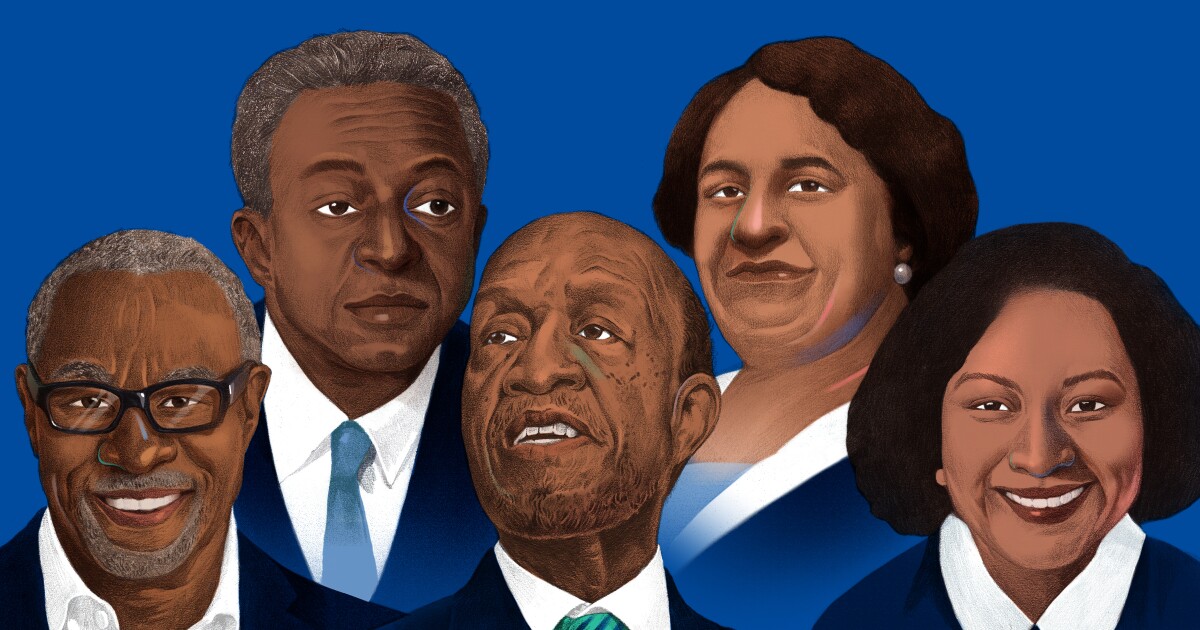
African Americans who left major legacies in wealth management, finance and business haven’t received their due, according to Cedric Nash, founder of the Black Wealth Summit.
“I think that we need to know more about these folks and the impact that they’ve had,” Nash said in an interview. “I think they need to become household names.”
In honor of Black History Month, Financial Planning compiled the profiles below and at the following links on five legendary figures from the fields of wealth, investment management and personal finance: LeCount Davis, Stanley O’Neal, Maggie Lena Walker, June Middleton and Gerald B. Smith. They each achieved historic “firsts” and laid the groundwork for a younger generation of Black professionals reaching milestones and setting ambitious goals.
Nash is blazing trails as well through the annual summit, which has drawn sponsorships and participation from firms such as Morgan Stanley, Charles Schwab, Raymond James and William Blair. As a wealth coach, investor, author and consulting-firm entrepreneur, Nash shared several more luminaries from the business world who he said should be role models every month of the year: Black Entertainment Television founder Robert L. Johnson; “Think and Grow Rich: A Black Choice” author Dennis Paul Kimbro; former Procter & Gamble, United Way and Ford executive George C. Fraser; leveraged buyout pioneer Reginald F. Lewis; Black Enterprise CEO Earl “Butch” Graves Jr.; and Vista Equity Partners Chairman Robert F. Smith.
“We have to find a way to fully educate our community about the sacrifices and the accomplishments,” Nash said. “Genius is kind of random. It’s not reserved to people who are white, Jewish, Asian or whatever. There’s genius everywhere.”
Learning about the legends and participating in efforts like the Black Wealth Summit that help more people gain access to the tools of wealth-building gives the industry an opportunity to build the long-term foundation to narrow racial disparities while creating ties to the aspiring professionals and investors of tomorrow, according to Nash.
Money-related trauma stemming from the country’s history is often “poisoning our mindset against the things that will actually benefit us if we invest appropriately and responsibly,” he said. On the other hand, much of the industry has been “redirecting their attention to other things” in recent years, even though, “What we’re trying to do with the Black Wealth Summit has a direct impact to their bottom line,” he added. Young people’s potential investment portfolios may hold the key to both problems — if they develop financial literacy.
“That’s the group that’s going to close the racial wealth gap, because they have time on their side,” Nash said. “It’s not because they lack intellect. It’s because they lack mentorship of people who don’t have a dog in the fight and don’t want to take advantage of them. Building wealth is slow, and you have to have someone mentor you through those ups and downs. It takes time and resources and people who are willing to lend their time and their expertise.”
To see excerpts from the five profiles with links to the full articles, scroll down the slideshow. And find other stories about Black financial advisors and wealth management professionals’ accomplishments here:
